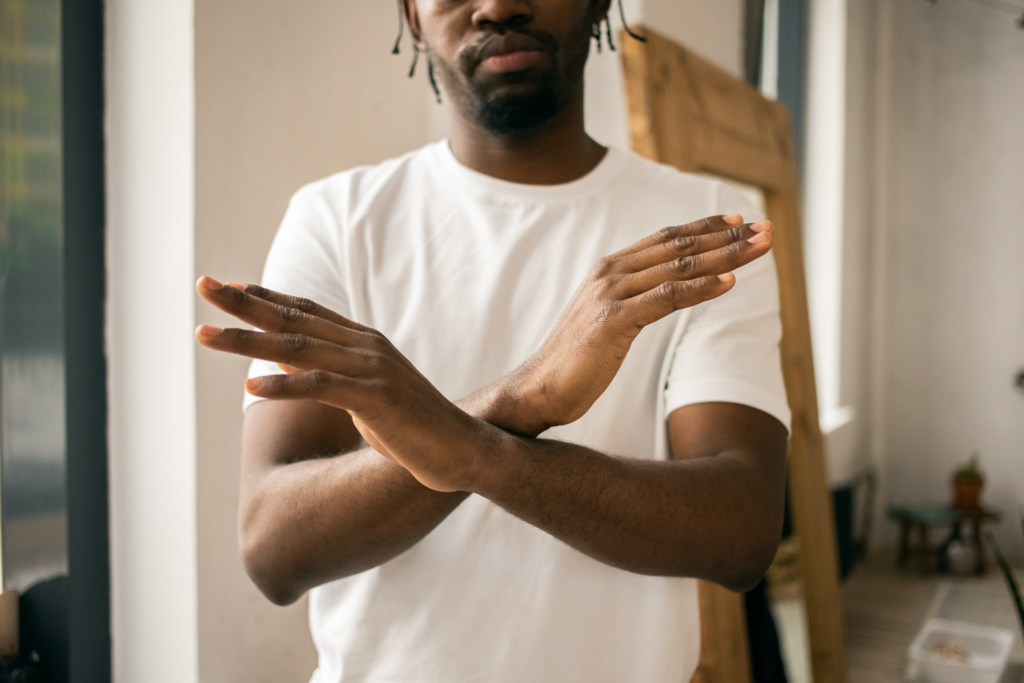Is there such a thing as the most magical word? I urge you to gather your thoughts, assess them, and trust me when I say that the word we will be considering together is the one that will most likely result in a change. Why is saying no an important life skill?
We use the word every day, sometimes only once, and sometimes several times. What exactly does it do? It does have an impact, sooner or later, on every occasion. It is, as you may have guessed, the word no, and the magic element to employ alongside it that adds to its potency is resilience.
Getting Started
Do you frequently respond with “sounds good!” or “I would want to!” before mentally processing the request for a favor or an invitation to an event? If so, you definitely are not by yourself! The majority of us have been trained to reflexively say yes when we really want to say no in order to appease other people.
We have accepted the idea that being a good friend, spouse, employee, parent, or person entails approving everything. The significance of saying no to support more genuine, balanced lives and relationships is discussed in this article.
A few will say no, but many will say yes. Remember that every no will get you closer to the many yeses as long as you have a system that works for you.
― Osayi Emokpae Lasisi
A Brief History Of The Word ‘No’
I came across an unusual story that was presented as an answer to the origin of the word no. When a young Australopithecus was going to pick up a hornet’s nest in 1,000,000 BC, his uncle smacked his hairy knuckles and screamed “Ngangh” before pantomiming was stung numerous times, and this word mumbled the youngster to himself.
He spent the entire day pulling juicy insects out of holes with a twig and making various horrifying grimaces while repeating the word. When his mother gave him some of his least favorite healthy herbs to eat that evening at the group campfire, the little hominid yelled “Ngangh” and hurled the tender shoots into the flames.
His furious mother pretended to be going to bed without dessert. Over the countless millennia, Ngangh evolved into No, which we use today.
Why is saying ‘no’ a challenge?
The word no lies at the heart of all reasoning. When you give something a thought, it can be easy to say yes, but employing this magical phrase can be difficult. The use of no may lead to abandonment, arguments, explanations, or even the fear of consequences, but the power of saying no is far greater than the power of expressing yes.
A lifetime is invested in the interval between yes and no. It is the gap between who you thought you could be and who you are now, between the road you pick and the one you do not. Saying no is the toughest thing some individuals can bring themselves to do. They can climb mountains, operate a business, undergo challenges, and care for their children, yet they find it difficult to say no.
They say yes because it is much easier to work according to the expectations and desires of people in their immediate surroundings, whether it is a business, a household, or even a group of friends. They may not have the desire or energy to complete the tasks, but they do so nevertheless to avoid feeling bad, disappointing their friends, or even avoiding a conflict.
What they need to do is muster the strength to tell the truth about how they feel, resist making excuses to appear guilty for something that is supposed to be a priority, and say no in the most courteous way possible, taking into account all options.
Why is the word ‘no’ a sign of respect?
The word no has a lot of weight behind it. Why is learning to say no an important life skill? It is simple to persuade the individual of your reasons for saying no if you follow a principle in determining your course of action.
Take, for example, invitations to specific events or even following a specific spiritual figure; you may choose to keep it a personal option. It can bring you complete peace or cause your enemies to wage a fierce battle against you, but if you are rooted in God and all that is pure, I have learned that you will triumph in the end, as long as you stay loyal to those inspirations that allowed such strength to escape from your lips into the atmosphere and ears of those who must hear, whether in peace or war.
The Power of a Positive No describes how to say No when it is vital to stand up and protect your core interests and values. It is not just about how to say No, however, but about how to do so in a respectful and constructive manner that can potentially lead to agreement. As its subtitle indicates, it is about how to say No and still get to Yes.
― William Ury
Why is saying ‘no’ good for you?
People are always important in your life, and we must master the art of interacting with them. Why is learning to say no an important life skill? It is by no means acceptable to cause hurt to others by your actions or words, and it is essential that others feel valued and cared for.
What if we put it this way: it is okay to offer your child sweets, but if you continue to give them sweets every time they ask for them, it will eventually be damaging to them?
Similarly, you must assist those in your close surroundings in times of need, but if you continue to lend your assistance to friends, family members, or even coworkers, they may lose the desire to work hard for themselves.
After working with thousands of people who had lost their No, I realized that there are three distinct aspects to Find Your No that you must master if you want to stop being a people-pleaser and start living the life you were meant to. You must find your personal no, find your interpersonal no, and find your global no. To find your personal no you examine the activities you are doing, and determine which ones are draining your time, money, or energy that you have allowed to continue. Use the three-step detect (I see the demand), deflect (I ask what is behind it), and reflect (I collaborate) method to find your interpersonal no. Your Global no deals with one fundamental issue, that of integrity.
― Noah St. John
How does the word ‘no’ change us for the better?
It is natural to want to immediately say yes in order to please the people in our lives, but it is so important to resist this urge. Instead, we must learn to take a breath, tune in to ourselves, and observe what we truly want.
Our consent to undertake something is genuine and a legitimate decision when we are aware that we truly do mean yes.
It is great to have the ability to say that we truly mean no. When consistently employing specific techniques to help us say no, our relationships may change for the better, becoming more sincere, genuine, and free of bitterness.
Conclusion
When things get tough, may we not be afraid to say no. We should continue to be able to make the correct decisions by choosing the most appropriate words for communication, no matter how difficult it may seem.
Most of the time, we should aim for the middle ground, but there are occasions when you should put yourself first. When it comes to the truth, there must be no ifs or buts.
The air ought to be clean, and the water should be clear. Since bargaining with the truth is not really an option, let us just try something new and focus on resilience.
The desire to be nice to everyone and please everyone and the inability to firmly say no is what destroys believers most of all.
― Sunday Adelaja
Sana Ahmed Khan is a life coach and author of multiple books from Islamabad, Pakistan. As a certified life coach and author, Sana is keen on helping women from all walks of life. Sana empowers you to overcome self-doubt, find balance, and become your best self through her guidance focused on mindful living, social skills, and personal development.


